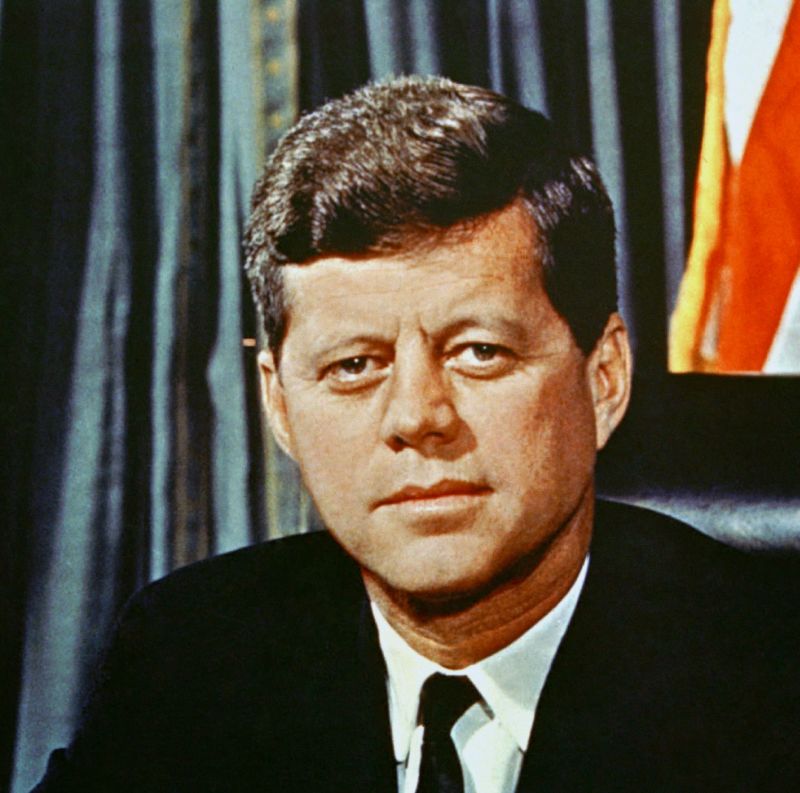Martin Webster
This was first posted on Anglo-Celtic.org in November 2018. Following the cyber attack on our site earlier this year, we are re-posting it because of the importance of the EU-Brexit topic to British racial nationalists.
A couple of months ago an old friend sent me an e-mail asking me to support the campaign for a second Referendum on Britain’s membership of the European Union (EU). He is a retired music teacher and cathedral organist who is still on the recital circuit. I was surprised to get his appeal since he had never before expressed any political opinions to me and I had never seen any reason to raise political issues with him.
In the light of the terms of his appeal, and at the risk of damaging our friendship, I decided, to ‘let him have it with both barrels’. The following was devised not just to enlighten him but in the hope that it will serve as a quarry of information and arguments for Brexit supporters to deploy when confronted by Remainers.
The referendum on Britain’s membership of the European Union was authorised by an Act of Parliament. That Act granted to the British people the sovereign power to determine whether or not they wished their nation to continue to be a member of the EU. The text on the ballot paper in the Referendum read:

There were no conditions, qualifications, sub-clauses, reservations, small print or other confusions to the stark ‘Remain’ or ‘Leave’ choice voters were given.
There was no statement on the ballot paper, or some ‘understanding’ explicit or implicit in the Act that if the electorate or the government or Parliament or business leaders don’t like the terms of Britain’s withdrawal in any negotiation with the EU and/or don’t like the possible economic impact of withdrawal with or without a treaty of withdrawal, then the matter be put back to the electorate in another referendum — or, indeed, further referendums as each sequence of negotiations is concluded and put to the electorate.
No such qualifications appeared on the ballot paper because, as the saying has it: “That way lies madness”.
‘Project Fear’ warned us before we voted
It cannot be said that the British people were not warned that there would be some extent of economic turmoil in the event of a Leave vote and the implementation of that decision. Those dire and excessive warnings were issued to the British people on a continuous basis by ‘Project Fear’ for weeks prior to the Referendum.
Many of the predictions of ‘Project Fear’ have been shown to be propaganda hogwash. There was no collapse of the Pound Sterling, no huge increase in unemployment and no need for “an emergency Budget within days in the event of a Leave vote”, as the then Chancellor of the Exchequer George Osborne assured us.
Since the Referendum the British economy has done rather well and unemployment has gone down.
I recollect a BBC ‘Breakfast’ TV interview with Lord Digby Jones, a former head of the Confederation of British Industry, on the morning that the Referendum result was made known. (See here). Just see the first five minues of the interview.
He made it clear that the British electors had heard loud and clear all that the ‘Project Fear’ propagandists had been saying prior to the vote, but had gone into the polling booths saying to themelves:
“I rather like the idea of electing the people who rule over me, unlike the set-up in the EU Commission. I put freedom first, and if I costs me a few shillings in the first instance, then so be it.”
So there is no legal, political or moral basis for a second referendum — on the contrary, there is a substantial legal, political and moral basis for insisting that the verdict of the British people, by a clear majority, be carried out.
The Leave majority would have been huge if only indigenous Britons had voted
Note that if only native Britons — people born of indigenous British stock — had voted in the referendum, then the Leave majority would have been huge.
As it was, a sustained attempt was made by the Remain camp to mobilise foreigners to frustrate the will of the indigenous British people on a crucial issue which affected the destiny of their homeland.
I regard that Remainer ‘mobilise the foreigners’ campaign to be not merely misguided, but an act of treason…. but, at base, that is what “the European Project” is all about: Treason, that is, subordinating your country to the will of another country or supra-national authority. There is no other word for it.
Whatever became of the oath which Parliamentarians and other public servants have to swear:
“I promise to bear true allegience to the sovereignty of Her Majesty Queen Elizabeth II, her heirs and successors, according to law”?
Can Remainer MPs, Peers, senior civil servants, members of the Armed Services and the Police swear that oath in good conscience, or do they cross their fingers behind their backs and wink at each other when they do so?
But the Remainer reaction to the Leave vote appears to be — at first glance — less sophisticated than treason, a sulky child’s refusal to accept the outcome of a democratic vote. “We don’t like the result and so we’re going to kick up, complain, drag our feet, have hysterics until the Leave people back down and we get our way!”
Imagine if any losing party in a general election were to campaign against the result on that basis! Such a party would be dismissed by the electorate as a serious contender for power for many elections hence. Foreigners would be forgiven for thinking that Britain had evolved into a Third World ‘banana republic’ kind of a country.
The Remainer campaign provides a justification for terrorism
The Remain ‘Second Referendum’ campaign is the astonishingly un-British and undemocratic reaction of that portion of the population which considers itself to be “Elite” and finds itself contradicted by those it regards as intellectual and social inferiors.
The Remainer campaign of subversion has been reinforced by the European Union’s negotiators, by Britain’s treasonous Civil Service and, not least, by ‘our’ Prime Minister Theresa May.
Their joint strategy from the outset was to delay-delay-delay, to get the Leave decision trapped and buried in a bog of complexity of their making in the hope that the Leave majority would throw up their hands in despair and give up.
In the past, we have often been assured by those in authority:
“There is no good reason for anybody in the UK to resort to terrorism because everybody has the vote, anybody can set up a political party, there is freedom of speech, the right of assembly, etc., etc.”
But that argument is a two-sided coin.
The other side is that if the results of votes and other attributes of democracy are denied to us, then there is every justification for a resort to terrorism. The Referendum was the biggest exercise in democracy Britain has ever seen. More than 17 million voters put their ‘X’ against the winning “Leave” option.
As has been remarked by others, including parliamentarians: “The Remain campaign to frustrate the referendum vote is playing with fire.”
Subversion of democracy a feature of the ‘European Project’ from the outset
The Brexit vote constitutes a kind of book-end to my political life. I began political activity in 1960/61 as a 17 year old in the Mill Hill (North London) branch of the Young Conservatives. I was already opposed to Britain joining what was then the European Economic Community (EEC).
I met another lad in the YCs who was also a member of the Anti-Common Market League. We asked for a debate on the issue. We were fed up with being asked to debate inane issues such as: “Are moving pavements a thing of the fuure and, if so, are they a good idea?”
Our request was resisted by the constituency Agent, a paid servant of Conservative Central Office. Eventually the Agent conceded because a lot of YCs were keen on having a debate about something important. However, we were unprepared for the cynical tricks he was willing to deploy at the last hurdle to frustrate democracy.
Nobody could be found within the YC membership to oppose our motion: “Britain must not join the EEC”. Ignorance of the topic and shyness is forgivable in teenagers.
The adult association was turned to, but nobody offered to speak against us. This is because they were either ignorant about the topic or cowards unwilling to engage in controversy of any kind — in most cases, probably both.
In the end, a Mr Rose from Golders Green, an adult from the adjoining Hendon & Finchley Constituency Association, had to be imported to advocate the pro-EEC case.
My friend (the Proposer) and I (his Seconder) relied on simple patriotism to advance our case: Our nation had never done well when entangled with Europe and had prospered when it secured its independence via a global mission. Did we fight two world wars in order to be ruled by foreigners?
Mr Rose’s case was mainly to do with avoiding further wars in Europe and talk of a huge home market. He was seconded by a YC who knew nothing of the issues and who said nothing beyond: “I Second Mr. Rose.”
“It’s now time for the disco….”
It was evident that my friend and I had captured the imagination of the audience and that Mr Rose had not impressed. It was going to be a landslide. Just as the vote was about to be taken, the constituency Agent, who had been evesdropping, stepped into the room and announced:
“You’ve all had a debate — but we’re all Conservatives here. We’re not going to divide ourselves, so there will be no vote. It’s now time for the disco….”
The Agent’s intervention prefigured and epitomises the pro-EEC/EU/Remainer attitide to being contradicted via the democratic process. It was that undemocratic fiasco which disillusioned me with ‘Establishment’ political parties and prompted my foray towards nationalist politics.
There is and never has been anything democratic about “the European Project”. It does not have and never has had “the full-hearted consent of the British Parliament and people”, because the British people have always known that Edward’s Heath’s assurance: “Membership of the EEC does not involve Briain in any loss of essential national sovereignty” was a plain lie — which he later admitted (as being “necessary”) — soon before he died.
The British public were never consulted either in a general election or via a referendum before we were taken into the EEC by Edward Heath’s Conservative government.
The referendum staged by Harold Wilson’s Labour government was a fraud in all sorts of ways, e.g.: the Remain and the Leave camps were both funded to issue to every household a booklet stating their case — but the government also issued its own “official” booklet, which was thoroughly Remain in content. The mass media was largely — and the BBC was wholly — pro-Remain.
I hope to see my country free before I die.







